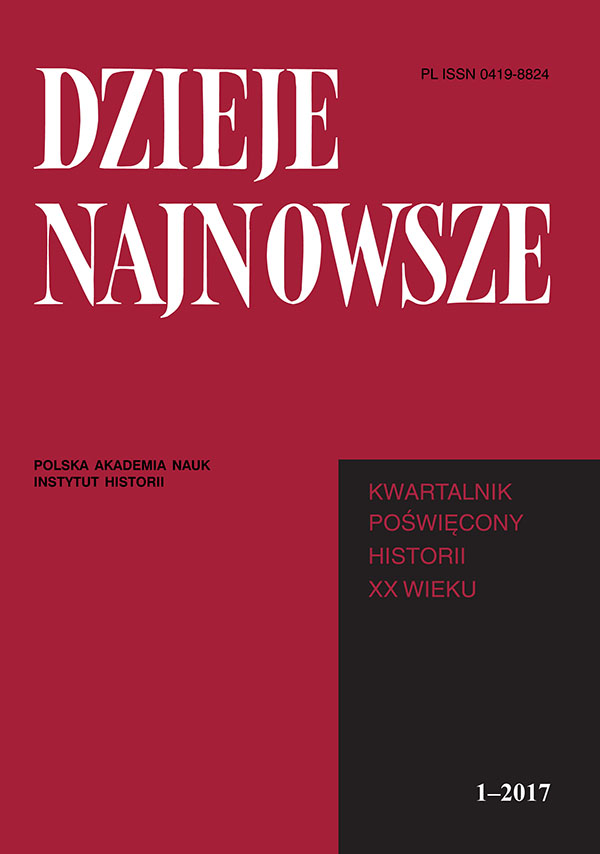Międzynarodowe skutki powrotu generała Charles’a de Gaulle’a do władzy w roku 1958
International consequences of Charles de Gaulle’s return to power in 1958
Author(s): Marek MikołajczykSubject(s): History, Diplomatic history, Oral history, Political history, Recent History (1900 till today), Post-War period (1950 - 1989)
Published by: Instytut Historii im. Tadeusza Manteuffla Polskiej Akademii Nauk
Keywords: Charles de Gaulle; 1958, foregin policy;
Summary/Abstract: At the moment of Charles de Gaulle’s return to power in mid-1958 France was facing serious international challenges. Particularly urgent was to decide on the realisation of a common market. De Gaulle had also to take a stance on the British proposal concerning the creation of the European free trade area, as well as to present his plans on the future of relations with Germany being the main partner of France in Europe. A separate problem was the question of relations with the United States. De Gaulle, in order to defend the sovereignty of France, many a time criticised the governments of the Fourth Republic for having shewn undue sumbimissivenes towards Americans, and also a dominant role of the United States in the NATO. And finally, there were relations with the Soviet Union which after the Soviet military intervention in Hungary in 1956 and the Suez crisis once more assumed a high state of tension, worsened by the French operations in Algeria.De Gaulle, although not an advocate of common market himself, decided that France would enter its realization. This was undoubtedly helped by his decision to reject the British proposal of the European free trade area and to tighten cooperation with Germany. In turn, his proposals of changes in functioning of NATO were rejected by the United States which led to a serious crisis and ended with France leaving the military structures of NATO. In relations between the East and West, de Gaulle wanted to depart from the policy of blocks in the favour of understanding with the USSR. And despite tensed relations between France and the Soviet Union in the first months of his rule, in de Gaulle’s opinion the tradition of mutual cooperation between the two countries was stronger than the communist ideology and was able to make head against temporary difficulties.
Journal: Dzieje Najnowsze
- Issue Year: 49/2017
- Issue No: 1
- Page Range: 145-172
- Page Count: 28
- Language: Polish

